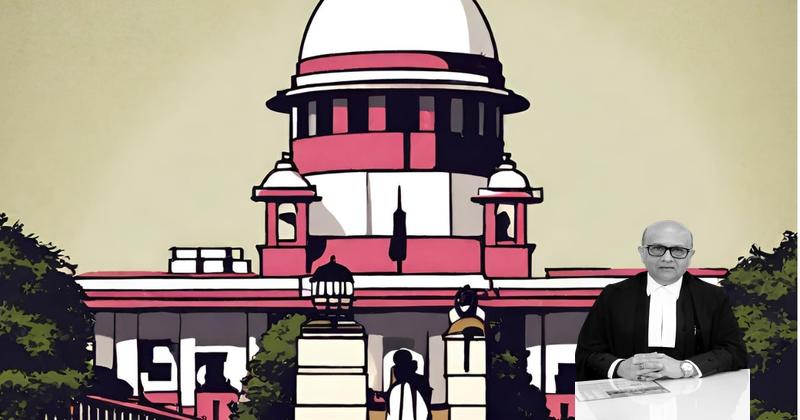AP(M)L had entered into Power Project Agreements (hereinafter referred to as “PPA”) dated 7 August 2008 with Uttar Haryana Bijli Vitran Nigam Limited and Dakshin Haryana Bijli Vidyut Nigam Limited (hereinafter referred to as “Haryana Utilities”), the appellants herein, for supply of 1424 MW power from Phase IV of the generating station. No 21 of 2018 in Petition No 97/MP/2017, stating therein that the compensation as claimed by AP(M)L was incorrect inasmuch as AP(M)L had not taken into consideration the benefits accruing to them on account of Inter Plant Transfer (for short, “IPT”) permitted under the communication dated 19 June 2013 issued by CIL.
Also Read: https://newslaw.in/case-type/criminal/abuse-of-process-of-law-a-case-of-delayed-fir-filing/
It was submitted by AP(M)L that the contention of the Haryana Utilities with regard to IPT has already been rejected by CERC in its order dated 31 May 2018. Issue
No 2: Whether our finding in respect of IPT coal at Para 61 of the order dated 31.5.2018 in Petition No 97/MP/2017 is applicable for the compensation payable for various taxes and duties approved as change in law in the order dated 6.2.2017 in Petition No. Insofar as Issue No 3 is concerned, CERC held that the transfer of coal by AP(M)L under IPT Policy also affects other generating stations that are consuming IPT coal and other distribution companies who are also supplied power by the generating stations that have used IPT coal. Insofar as the issue with regard to communication dated 19 June 2013 being ‘Change in Law’ is concerned, APTEL held the same not to be ‘Change in Law’. When we heard this batch of Electricity appeals, it was agreed between all the parties that this Court should first decide Civil Appeal No 684 of 2021 ( Maharashtra State Electricity Distribution Company Limited v.
The said three common issues are thus: (i) Whether ‘Change in Law’ relief on account of NCDP 2013 should be on ‘actuals’ viz. The first issue was answered by this Court, holding that the ‘Change in Law’ relief for domestic coal shortfall should be on ‘actuals’ i.e. It will be relevant to refer to the communication dated 19 June 2013, which reads thus: “ Sub: Modification in Model FSA applicable for New Power plants in respect of “Interplant transfer of coal” A proposal for allowing inter power plant transfer of coal from one Power Plant to another under the modified FSA applicable for New Power Plants (for both PSU/Govt.
Also Read: https://newslaw.in/case-type/criminal/analysis-of-circumstantial-evidence-conviction-reversed/
c)
In no case the transferred quantity to a plant together with the quantity supplied under the applicable FSA shall exceed the ACQ of the Transferee Plant for a particular year which is proportional to the long term PPA with DISCOMS. It further provides that both the Power Plants should have executed FSA in the modified FSA Model applicable for new power plants and not having any supplies linked to coal blocks.
It further provides that in no case the transferred quantity to a plant together with the quantity supplied under the applicable FSA shall exceed the ACQ of the Transferee Plant for a particular year which is proportional to the long term PPA with DISCOMS.
Also Read: https://newslaw.in/case-type/criminal/quashing-of-proceedings-in-criminal-case-no-542-of-2020/
There is no denial of the fact that the letter dated 19.06.2013 addressed by CIL intimating to all subsidiaries the decision taken at its 298 board meeting (27.05.2013), allowing IPT of coal was conditional upon transfer (of coal) to be allowed only between the power plants wholly owned by the purchaser or its wholly owned subsidiary and supply of coal for all commercial purpose under the FSAs to remain unchanged and on account of original power plant. In the said case, it was sought to be argued on behalf of MSEDCL that the Evacuation Facility Charge (for short, “EFC”) imposed by CIL vide its circular dated 19 December 2017 did not constitute ‘Change in Law’.
It is incorrect to argue that to be covered as a change in law event under such contractual clauses as quoted earlier, the instrument whereby the law is claimed to have undergone a change must have been published in official gazette to have the force of law. (supra), for illustration, even a letter of the Ministry of Power in the Government of India was accepted as an instrument having the “force of law”.
Case Title: UTTAR HARYANA BIJLI VITRAN NIGAM LIMITED Vs. ADANI POWER (MUNDRA) LIMITED (2023 INSC 403)
Case Number: C.A. No.-002908 / 2022



